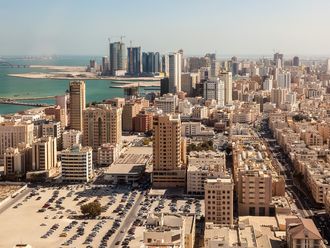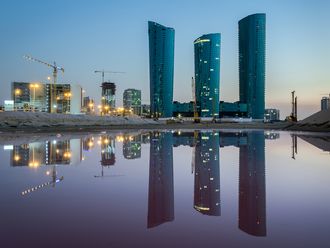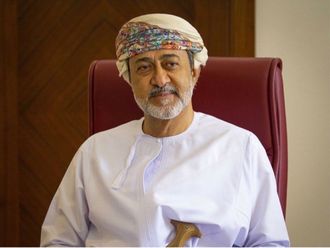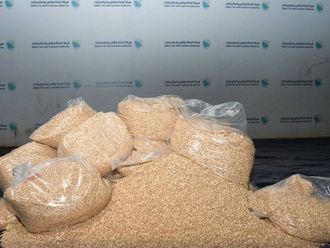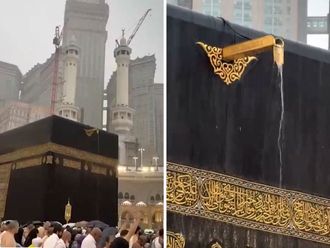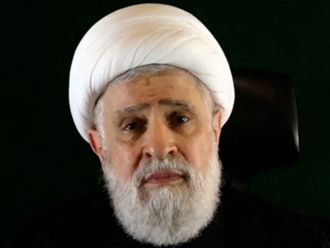
Manama: The Al Wasat board on Sunday afternoon appointed Obaidli Al Obaidli as the new editor-in-chief of the newspaper to replace Mansour Al Jamri who had been at the helm of the daily since its launch in 2003.
The newspaper’s editor, Waleed Nwihedh and its local news editor, Aqeel Mirza, were also replaced, the board said.
Following the board’s decision, the Information Affairs Authority (IAA) said that it was lifting the ban it imposed on Saturday evening on the newspaper.
The IAA said that it shut down the daily after it published “fake reports” in its coverage of the unrest.
IAA had charged the paper, set up in 2003, with publishing "false news based on events that never happened and names of fictitious people allegedly ill-treated by the police".
The daily is also accused of using old articles in its coverage of the unrest that has hit Bahrain since mid-February.
Under the 2002 Press Law, publishing allegations and false news that could harm public interest is punishable by imprisonment and fines, the IAA said earlier.
The earlier decision to suspend the paper's publication followed the airing of a talk show on Bahrain TV on Saturday evening during which the allegations were presented by the host.
The newspaper in 2009 won the Bahrain e-Content Award for its improved website and Forbes Middle East ranked it 15th in the top-50 online newspapers in the Middle East and North Africa (Mena) region for 2010.
The online edition of Al Wasat was locally and internationally recognised for its prompt news updates and easy surfing.
Bahrain has five dailies in Arabic and two in English.
Meanwhile, Bahrain has eased a curfew it imposed last month around a major highway in Manama, citing an amelioration of the security situation in the exclusion zone.
According to the army's communiqué on Sunday, traffic is banned on and near King Faisal Highway, from the Seef Flyover until the entrance to Shaikh Eisa bridge that leads to Muharraq, Bahrain's second largest city, from midnight until 5am.
In a separate communiqué, the interior minister said suspected saboteur Hassan Jasem Mohammad Makki, 39, a sickle cell patient, died in police custody at 10.30 am on Sunday.
"A doctor treated him at 9am, but he lost conscience at around 10.30am and was taken to hospital in an ambulance," the ministry said. "The victim has been in police custody since March 28 on suspicion of taking part in acts of sabotage."
Bahrain Petroleum Company (Bapco) sacked Abdul Gaffar Abdul Husain, its trade union head, reportedly for instigating employees to take part in a general strike last month.
Bapco, one of the most powerful companies in the region, is preparing to take legal action against the trade union for causing financial losses and for dividing workers.
The move by Bapco comes in the middle of calls by several lawmakers to take "stringent legal action" against all political and vocational societies as well as trade unions that were "implicated in legal and constitutional violations".
"The government should act decisively against all those who caused sectarian tension, threatened security and social peace, spread chaos and hatred within Bahraini society, politicised vocational associations, mainly in the education and health sectors and brought the economy to a standstill," the Independent Bloc, an alliance of 12 MPs, said in a statement.
The bloc is now the largest in the lower chamber of Bahrain's parliament after the 18 members of Al Wefaq resigned last month to protest against the government's handling of the demonstrations following the launch of public rallies on February 14.
The lower chamber endorsed 11 of the resignations and deferred its decision on the remaining seven.
In a new indication of growing political tension, Al Wefaq and six other opposition groups have come under fire from Abdul Lateef Al Mahmoud, the head of the newly-formed National Unity Rally, who demanded an apology from them for "what they have done to Bahrain and its people during the unrest".
However, the societies, grouped under a loose alliance, have repeatedly dismissed claims that they had acted against Bahrain's interests.
Socially, a group of young Bahrainis and foreigners have launched a national campaign to help ease sectarian tension and help make Bahrain a better place for citizens and residents.
"We plan to involve every segment of the local community to best reflect a true national exchange from a wide range of age, cultural, and ethical perspectives," Rashid Riaz, event and campaign manager, told the local Gulf Daily News.
"We intend to move away from the political scene and focus on social reforms, trying to bridge the drift, and we plan to stage a series of national events using the power of music, art and literature as a universal language to reach out and motivate. We will use our global social networking and communication capabilities to give each person a voice and an opportunity to change the view of our beloved Bahrain for the better," he said, quoted by the daily.
The group will launch "Proudly Bahraini" to do something positive for Bahraini businesses that were boycotted during the unrest and give them support, the organisers said.
Expatriates "who have been some of the most affected and have been a silent voice" will also be heavily involved in the events.
Events include messages by Bahrainis, expatriates and friends from abroad to share their views about Bahrain, its culture, traditions and values as well as interviews with Bahraini chief executives, ministers, TV stars and celebrities.
At the other end of the spectrum, several property owners are trying to cash in on residents' safety concerns resulting from the political unrest by increasing rents in areas that are considered relatively safe.
According to official figures, 24 people, including 13 protesters, seven civilians and four policemen, have been killed in the uprising.


